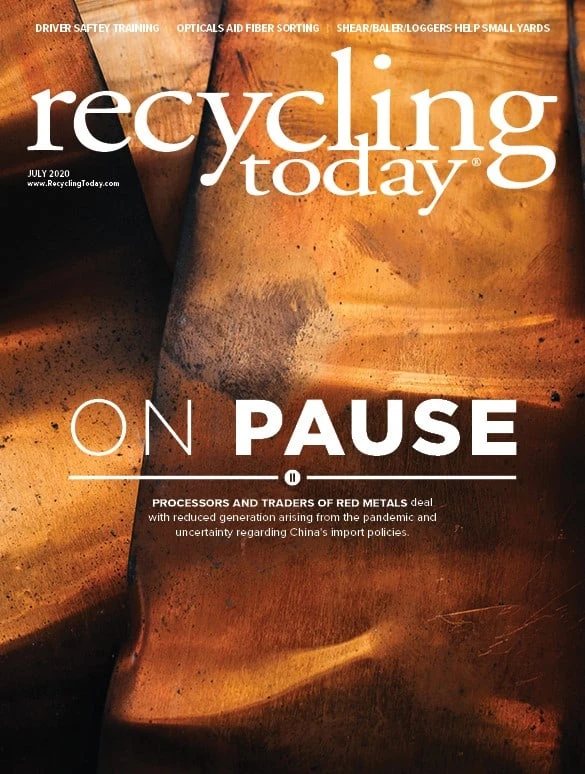Bio Pappel starts plant in Lebanon, Indiana
Mexico City-based recycled-content paper producer Bio Pappel S.A.B. de C.V. has started operations at its new corrugated conversion plant in Lebanon, Indiana, through its subsidiary U.S. Corrugated Co. According to a news release from Bio Pappel, this is its sixth U.S. industrial unit.
In a statement issued to the Mexican Stock Exchange, the company says the startup in Lebanon is part of its international expansion plan. Bio Pappel says it also plans to construct two industrial plants in the next three years in Tizayuca and Monterrey, Mexico.
Miguel Rincón Arredondo, president of Bio Pappel, the largest manufacturer of paper and paper products in Mexico and Latin America, says North America is the best place for the company to invest and grow as a result of the recently passed U.S.-Mexico-Canada trade deal.
ISRI to develop protocol for product recyclability
The Institute of Scrap Recycling Industries (ISRI), Washington, says it is developing a recyclability protocol and certification system for paper-based packaging products entering the recycling stream. Once developed, the protocol will be expanded to other products made from recyclables.
The protocol and certification will be phased in over the next year, ISRI says. Working with Moore & Associates, Atlanta, as a third-party consultant, ISRI is undergoing a thorough review of existing certifications and standards to aid in the integration of the protocol with applicable programs. This will be followed by a survey of material recovery facilities (MRFs) nationwide to gain an inventory of packaging that is recycled from the standpoint of materials and shape and size, as well as regional variances in technology and capacity. With the data, the certification protocol, including testing methodologies and procedures, and the application process for obtaining certification will be developed, ISRI says. The process for obtaining certification by brands will be fully documented and transparent.
“Under the current system, there is no standard to determine a product’s recyclability from beginning to end, which is an obstacle for increasing packaging recycling rates,” says ISRI President Robin Wiener. “Products are labeled recyclable that are not, consumers are confused, and the residential recycling stream is weakened by excessive amounts of products and materials that do not belong. Having one, universal determination for recyclability created by the recyclers that collect and process the material, in coordination with the mills that consume it, will be an enormous step forward in the evolution of recycling.”
She adds, “Once in place, the recyclability protocol will assist packaging manufacturers in understanding what is and what is not recyclable, especially in the design stage. This will lead to a revolution in design innovation as more brands seek ways to not only use recyclable content in production but meet consumer demands for easy-to-recycle goods. As more products are developed with recycling in mind, consumers will rediscover recycling and the vast benefits it provides.”
Among the many things that will be taken into consideration are industry expertise on material supply, processing and demand challenges and needs; ISRI’s Design for Recycling initiative, which encourages manufacturers to factor in a product’s recyclability in the design stage; and the role of the ISRI specifications, which are used globally to buy and sell recyclables.
ISRI says it will consult with the American Forest & Paper Association, the Foodservice Packaging Institute, The Recycling Partnership and other stakeholders during the development of the protocol and certification.

Explore the July 2020 Issue
Check out more from this issue and find your next story to read.
Latest from Recycling Today
- Aqua Metals secures $1.5M loan, reports operational strides
- AF&PA urges veto of NY bill
- Aluminum Association includes recycling among 2025 policy priorities
- AISI applauds waterways spending bill
- Lux Research questions hydrogen’s transportation role
- Sonoco selling thermoformed, flexible packaging business to Toppan for $1.8B
- ReMA offers Superfund informational reports
- Hyster-Yale commits to US production





